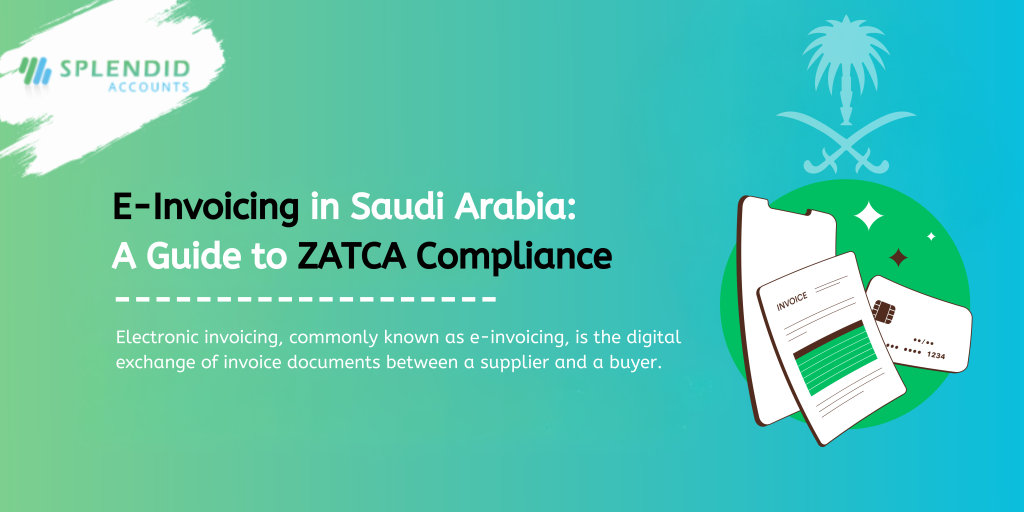
Electronic invoicing, commonly known as e-invoicing, is the digital exchange of invoice documents between a supplier and a buyer. In Saudi Arabia, the Zakat, Tax, and Customs Authority (ZATCA) has mandated the adoption of e-invoicing to enhance tax compliance and streamline financial transactions.
Phases of E-Invoicing Implementation
The rollout of e-invoicing in Saudi Arabia is structured in two primary phases:
- Phase One: Generation Phase (Effective from December 4, 2021)
- Requirement: Taxpayers are obligated to generate and store electronic invoices and associated notes (credit and debit) in a structured electronic format.
- Objective: Transition from paper-based to electronic invoicing systems to improve efficiency and reduce errors.
- Phase Two: Integration Phase (Commencing January 1, 2023)
- Requirement: Taxpayers must integrate their e-invoicing solutions with ZATCA’s Fatoora Portal for real-time transmission and validation of invoices.
- Objective: Enable seamless communication between taxpayers’ systems and ZATCA to ensure compliance and facilitate monitoring.
The Fatoora Platform
Central to the e-invoicing initiative is the Fatoora Platform, developed by ZATCA. This platform serves as the hub for managing e-invoicing processes, including:
- Onboarding E-Invoice Generation Solutions (EGS): Businesses register their e-invoicing systems with ZATCA to obtain Cryptographic Stamp Identifiers (CSIDs), ensuring the authenticity and integrity of each invoice.
- CSID Management: The platform facilitates the renewal, revocation, and oversight of CSIDs, maintaining the security of the invoicing process.
- Integration Support: Provides resources and documentation to assist businesses in aligning their systems with ZATCA’s requirements.
Compliance Requirements
To adhere to ZATCA’s e-invoicing regulations, businesses must ensure their systems can:
- Generate Structured Invoices: Invoices should be produced in a format that allows for electronic processing and integration.
- Include Mandatory Fields: Each invoice must contain specific information as stipulated by ZATCA, such as seller’s details, tax amounts, and a unique invoice identifier.
- Incorporate Security Features: Invoices need to be equipped with features like QR codes and digital signatures to verify their authenticity and prevent tampering.
Penalties for Non-Compliance
Failure to comply with e-invoicing regulations can result in significant penalties, including fines ranging from SAR 5,000 to SAR 50,000 for violations such as:
- Not issuing electronic invoices.
- Omitting mandatory information.
- Using non-compliant systems.
Repeated offenses may lead to increased fines and further legal consequences.
Conclusion
The implementation of e-invoicing in Saudi Arabia marks a significant advancement in the nation’s financial and tax infrastructure. By adopting ZATCA-compliant e-invoicing systems, businesses not only ensure adherence to regulations but also benefit from enhanced operational efficiency and reduced administrative burdens.
For detailed guidelines and updates, businesses are encouraged to consult ZATCA’s official resources and the Fatoora Portal.
